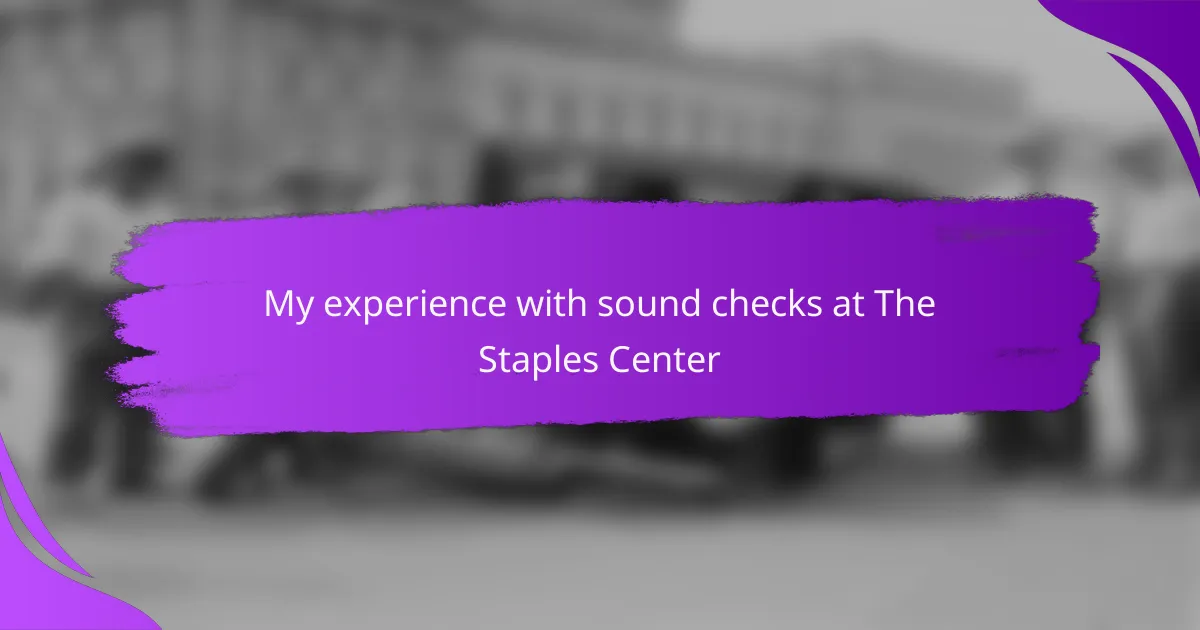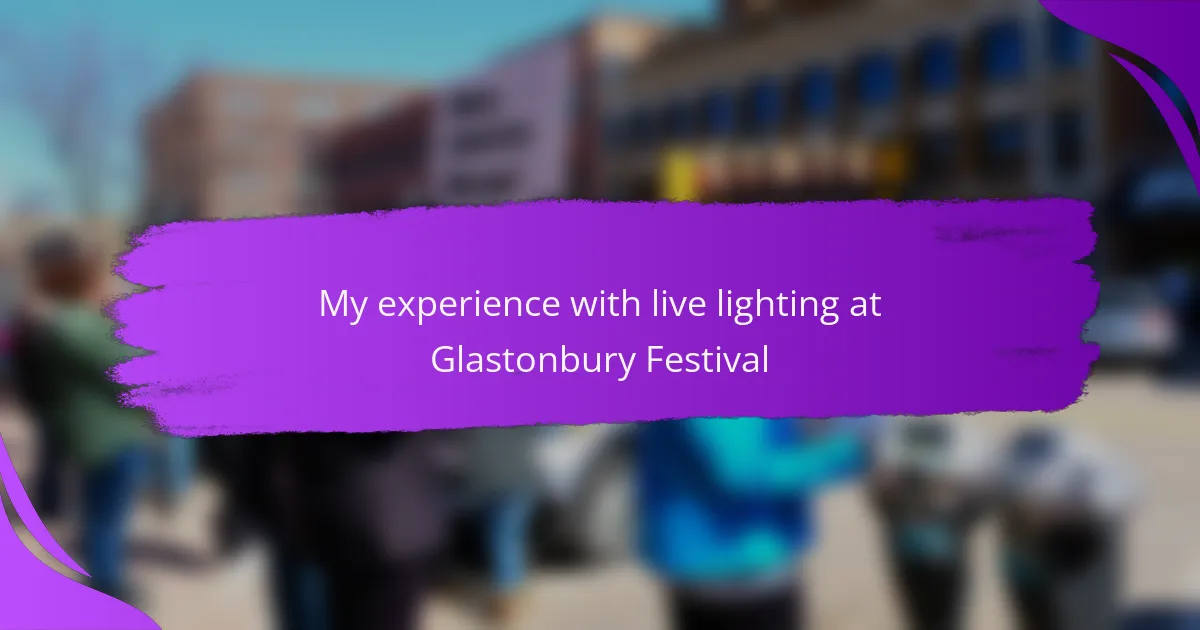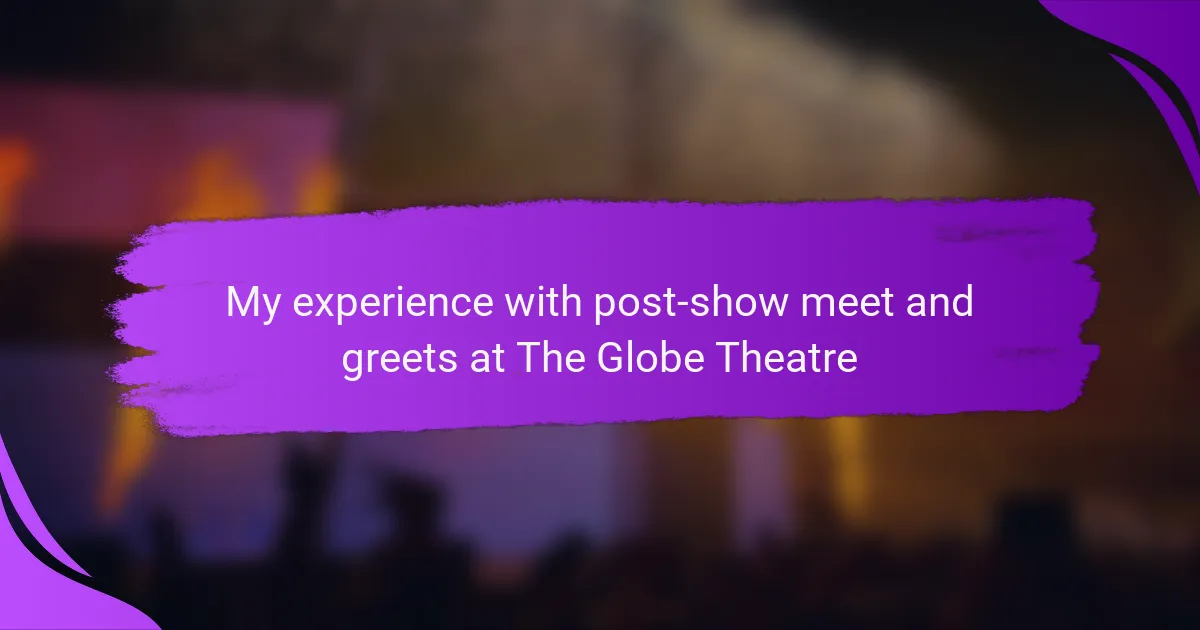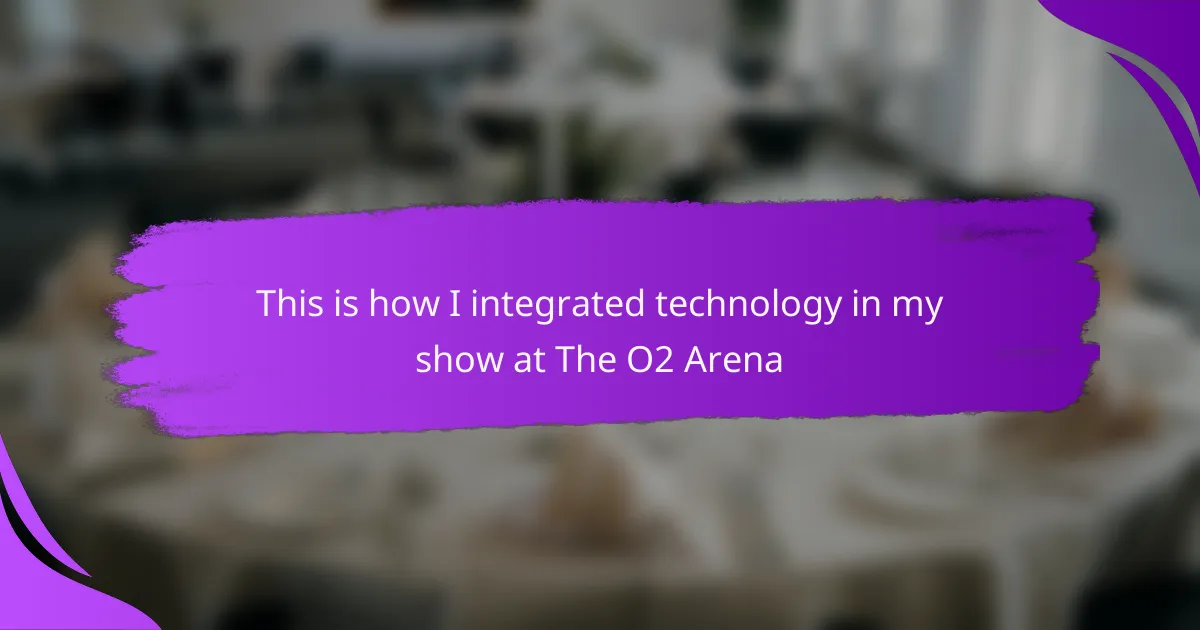Key takeaways
- Nightclub artist entertainment thrives on creativity, with performances creating a unique atmosphere through music and audience connection.
- Effective time management enhances performance quality, enabling artists to connect better with their audience and build industry relationships.
- Clear backstage organization—through designated zones, checklists, and team communication—reduces stress and improves efficiency during shows.
- Adaptability, teamwork, and attention to detail are vital lessons learned from backstage experiences that contribute to successful performances.
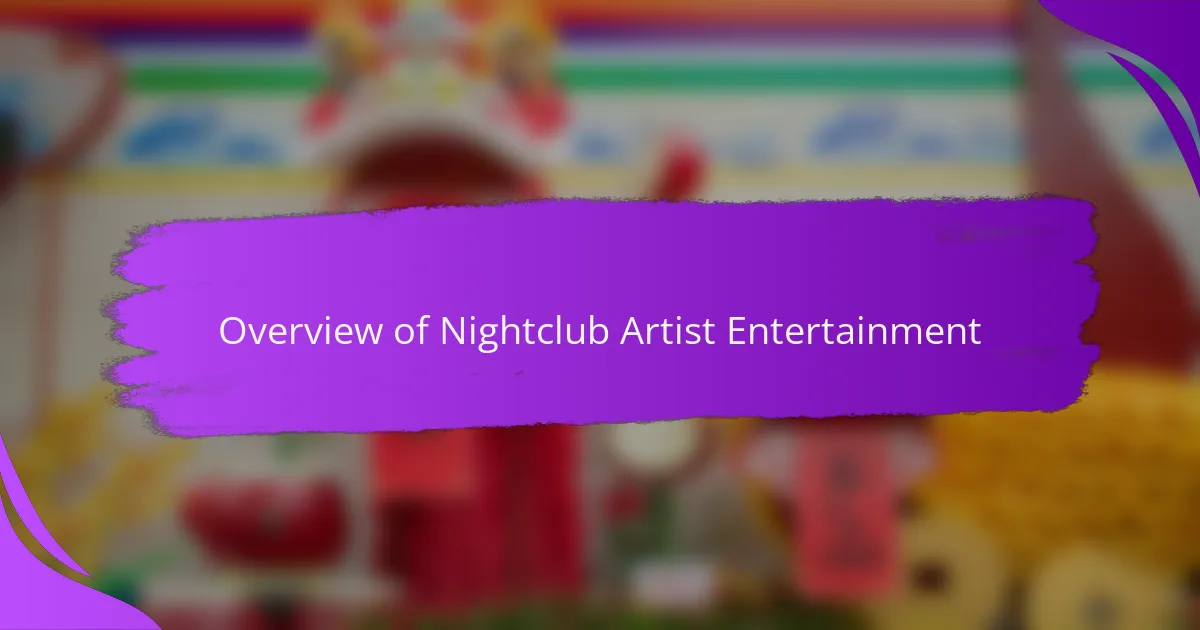
Overview of nightclub artist entertainment
Nightclub artist entertainment is a vibrant and dynamic field that thrives on creativity and energy. I’ve seen firsthand how artists bring a venue to life, turning an ordinary night into an unforgettable experience. It’s fascinating to think about how every performance draws from a unique blend of musical talent, stage presence, and crowd interaction.
In my experience, the connection between the performer and the audience is palpable. I remember one particular night when a DJ masterfully read the room, shifting the music to match the crowd’s vibe. It’s moments like these that remind me of the artistry involved in nightclub entertainment—it’s not just about the music, but about creating an atmosphere where everyone feels included and mesmerized.
Engaging with diverse talents is another thrilling aspect of this world. From live bands to solo acts, the variety keeps things fresh and exciting. Have you ever wondered how different genres can reshape the energy in a nightclub? I have, and it’s incredible to witness the transformation as different artists take the stage, each leaving their unique mark on the night. Every performance tells its own story, and that’s what makes nightclub artist entertainment so captivating.
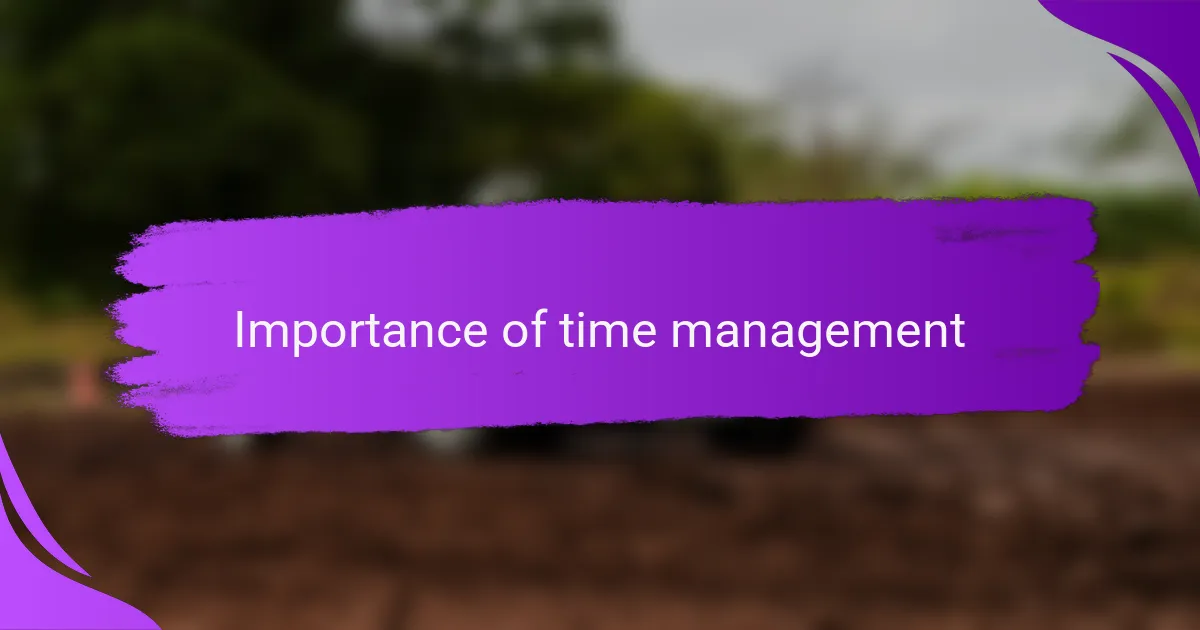
Importance of time management
Time management is crucial in the fast-paced environment of nightclub entertainment. I’ve learned that effective planning allows artists to focus on their performance rather than getting lost in the chaos. Have you ever felt the pressure of a ticking clock when preparing for a show? I certainly have, and it’s exhilarating yet daunting. When I managed my time well, I found that I could better connect with my audience and deliver a standout performance.
The ability to prioritize tasks is another key aspect of time management. During my time at The Forum, I often juggled sound checks, costume changes, and networking. I vividly recall a night when I had to balance rehearsals and engage with fans. Because I was organized, I could enjoy the excitement of the night without feeling overwhelmed. It’s remarkable how setting clear time limits can enhance focus and creativity.
Moreover, managing my time effectively allowed me to build strong relationships in the industry. I remember a moment when I made an important connection with a booker just because I had set aside an hour for networking. Those moments remind me that time management isn’t just about getting things done; it’s about creating opportunities that can elevate our careers. How do you prioritize your time to maximize your potential in this competitive space?
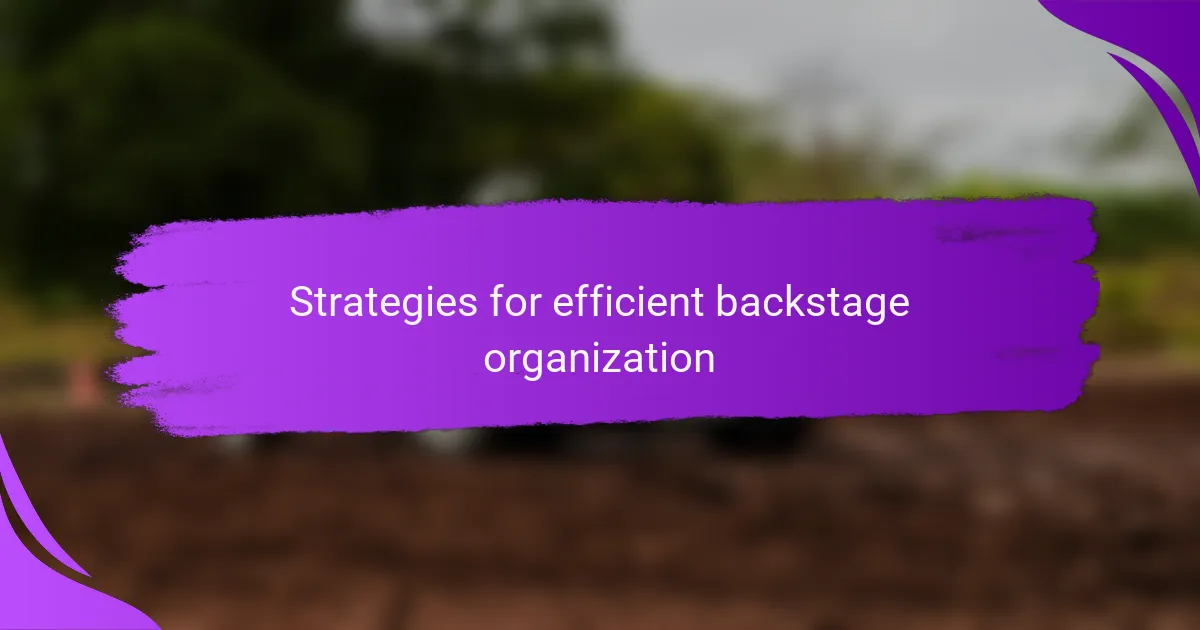
Strategies for efficient backstage organization
When it comes to efficient backstage organization, I found that a clear layout can make a world of difference. For instance, I often designate specific zones for equipment, performers, and crew. This helps everyone know where to go and reduces the chaos that can easily happen moments before a show.
I also recommend creating a quick-reference checklist. I personally love this method—it keeps me focused and ensures that I don’t forget essential items. During my time at The Forum, I created a laminated version that I could wipe clean after each event, which ended up being a game-changer for me.
In my experience, communication is key. I used to hold brief meetings with all team members to discuss our goals for the night. This not only built camaraderie but also aligned everyone on expectations, reducing stress as showtime approached.
| Strategy | Description |
|---|---|
| Zone Designation | Creating distinct areas for equipment, performers, and crew to streamline movement and reduce confusion. |
| Quick-Reference Checklist | A laminated checklist that ensures essential items are remembered and organized before the show. |
| Team Meetings | Short pre-show meetings to discuss plans, encouraging communication and reducing stress among the crew. |
![]()
Tools for tracking performance schedules
When it comes to tracking performance schedules, I’ve discovered various tools that can be absolute lifesavers. For instance, using apps like Google Calendar helps keep my commitments organized in one place. I remember a frantic evening at The Forum when I missed a call time due to a misunderstanding. Since then, I’ve made it a point to set reminders that pop up ahead of every important task, ensuring I never overlook vital moments.
In my experience, having a shared digital calendar with my team was a game-changer. We could all access performance dates and updates in real time, which minimized the stress of coordinating our schedules. I recall one night when an artist’s set time shifted unexpectedly. Thanks to our shared tool, we adjusted seamlessly, maintaining the show’s momentum without any hitches.
The importance of physical tools, like whiteboards or charts, cannot be understated either. I used to take a moment, just before the chaos began, to jot down our setlist and corresponding times on a whiteboard backstage. This visual reminder was comforting, especially during busy nights. Have you ever relied on a quick visual cue to keep you grounded? I certainly have, and I can say that it not only kept me on track but also fostered a sense of teamwork among everyone involved.
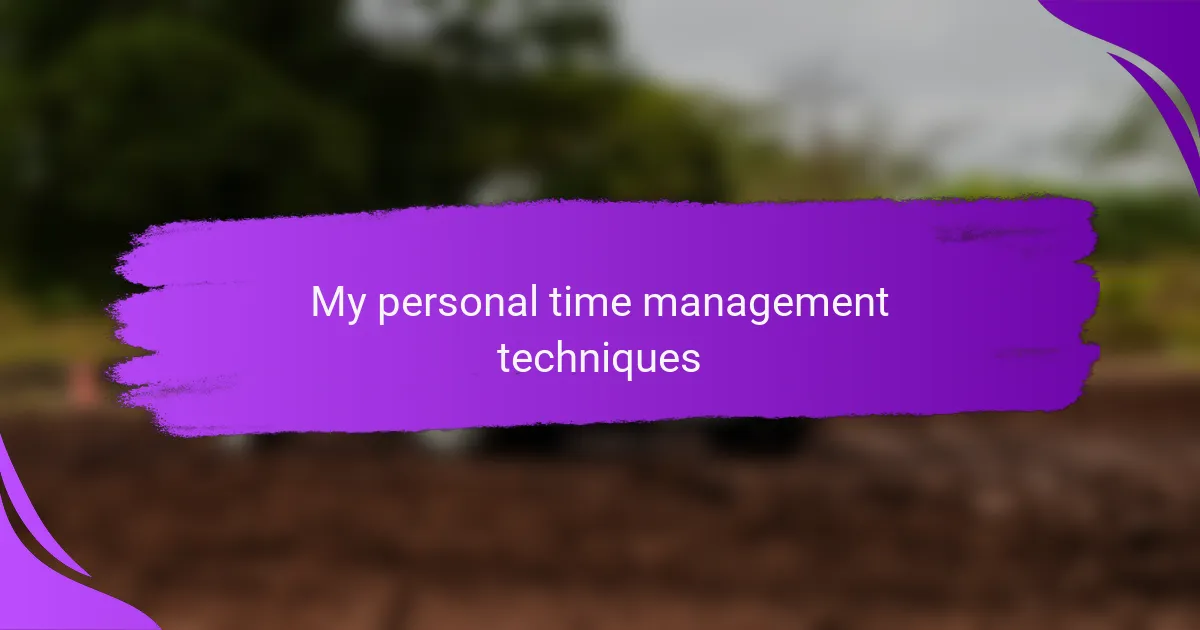
My personal time management techniques
Managing my time effectively is key when I’m preparing for a show, especially backstage at The Forum. One technique that works wonders for me is breaking tasks into smaller, manageable chunks. I recall a night when I faced multiple responsibilities, from sound checks to costume changes, all within a short window. By prioritizing my tasks, I found clarity in the chaos, allowing me to focus on each step without feeling overwhelmed. Have you ever tackled a daunting project that seemed insurmountable? I have, and this approach changed my entire perspective.
Another strategy I rely on is the power of setting realistic deadlines. During one bustling evening, I allowed myself a 15-minute window for each task. This timeframe kept me on track and added a motivational element—kind of like a mini-challenge for myself. I remember glancing at the clock and pushing through a costume change, feeling exhilarated as I completed each step on time. It’s amazing how little constraints can spark a burst of productivity. Have you tried creating time limits for yourself?
Lastly, I find that reflecting on my day helps me manage time more effectively for future performances. After a night at The Forum, I often take a few moments to evaluate what worked and what didn’t. This practice not only improves my organizational skills but also enhances my overall performance. I once realized that I spent too long on a task that could’ve been streamlined. So, I adjusted my approach for the next gig, and the difference was remarkable. Is there a technique you’ve learned from past experiences that transformed how you work? I’d love to hear your insights.
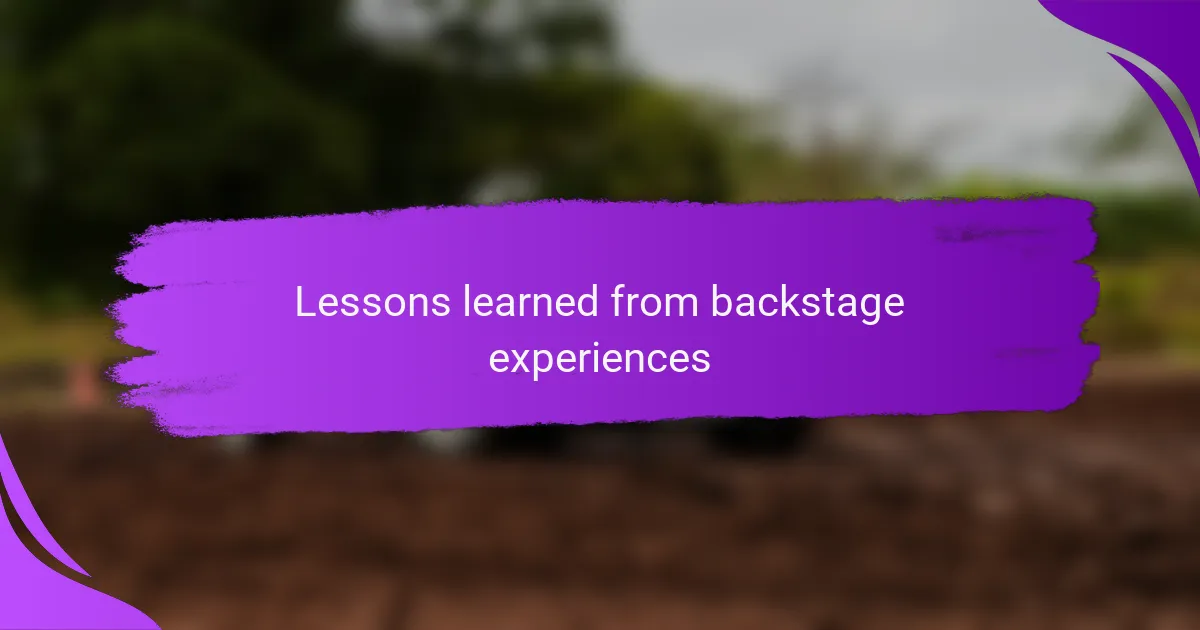
Lessons learned from backstage experiences
Experiencing the hustle and bustle of backstage life taught me invaluable lessons I carry with me to this day. One night, while preparing for a major performance, I learned that adaptability is essential. The unexpected happened—a last-minute change in setlist. Instead of panicking, I stayed calm and adjusted my approach. That taught me that flexibility could turn a potential disaster into an opportunity for creativity. Have you ever found yourself needing to pivot in a critical moment? Embracing those moments can lead to surprising outcomes.
Another lesson emerged from understanding the importance of teamwork. During a particularly hectic evening, I witnessed how effective collaboration could elevate the entire experience. One of my colleagues jumped in to assist with sound adjustments, allowing everyone to stay focused. Those small acts of support mean the world in high-pressure environments. It made me realize that the collective effort often shines brighter than individual talent. How do you foster teamwork in your own experiences?
Reflecting on past shows also reinforced my belief in preparation. After a memorable night, I took time to assess what helped the performance flow smoothly. I discovered that mastering the details—the small things such as timing entrances or having water ready—made a significant difference. It’s like each tiny puzzle piece comes together to create a beautiful picture. Have you noticed how the little details can transform an experience? This realization is something I consistently strive to incorporate into every performance.
